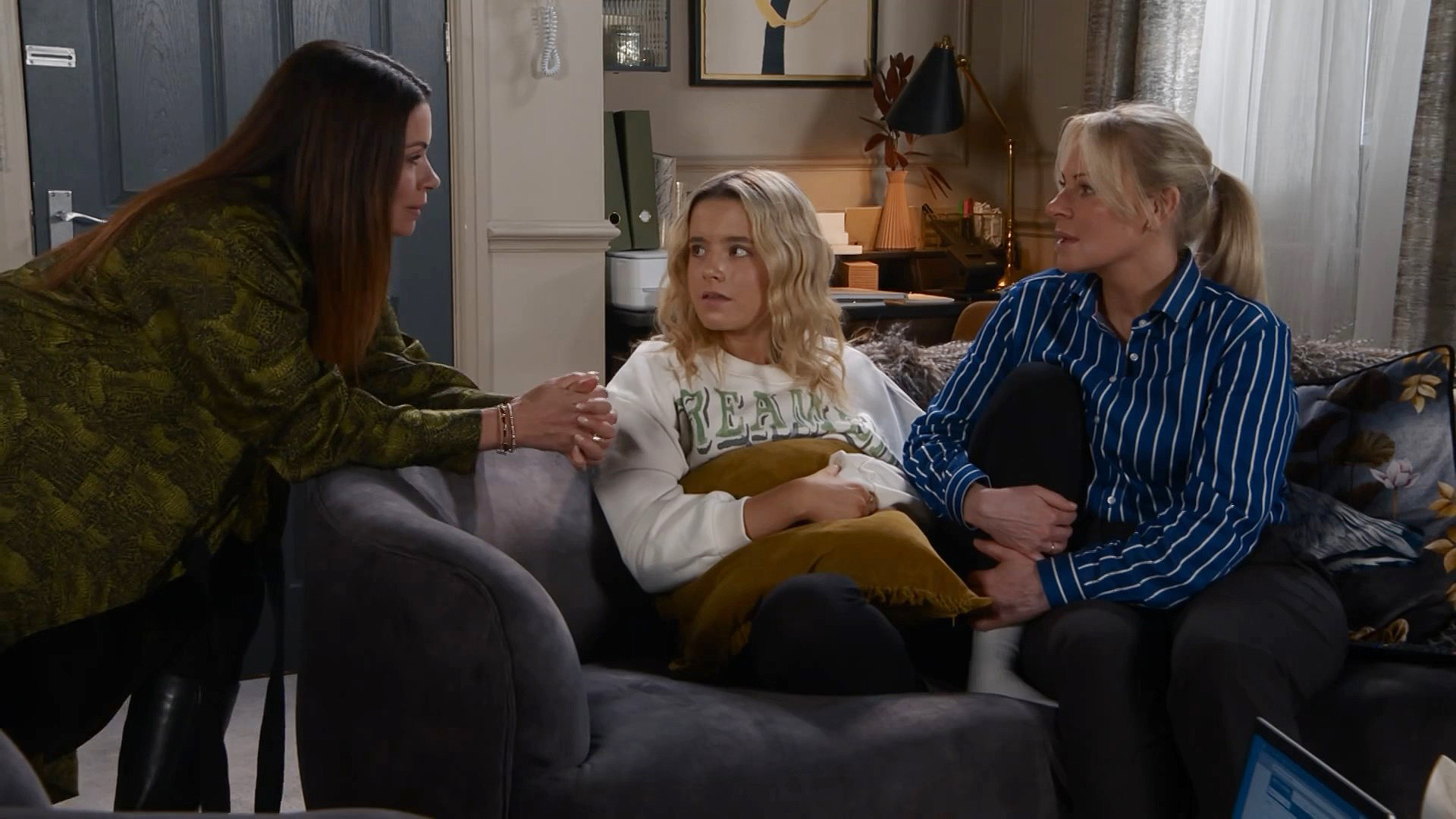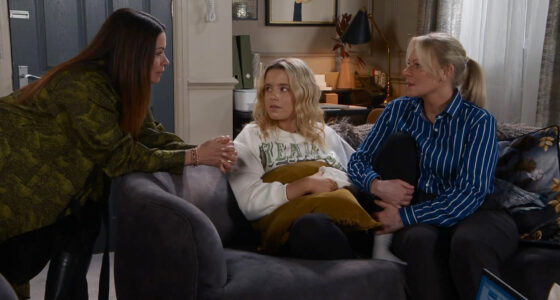Coronation Street are flipping the narrative and showing what true representation can look like. A queer love story truly changing the game for everyone watching.
For decades, British soaps have been a staple of television, holding up a mirror to everyday life and reflecting the triumphs, heartbreaks, and struggles of ordinary working class people. Yet for much of their history, these shows often left entire communities in the shadows. And while soaps have made strides in recent years, introducing more LGBTQ+ characters and exploring a wider range of stories, representation is still lacking. Too many storylines feel tokenistic, short, lived or built on tired tropes.
Enter Carla Connor and D.S. Lisa Swain. In a genre that has often struggled to give queer characters the depth and dignity they deserve, these two women have set a new standard for how LGBTQ+ storytelling should be handled: with patience, care, and authenticity.
And if that wasn’t historic enough, Carla and Lisa just became the first same-sex couple to own a home on the cobbles in Coronation Street’s sixty-five year history. A monumental milestone not just for the show, but for British television as a whole. It challenges the notion that queer love is temporary, or marginal, or somehow ‘other.’ Now, it’s just part of the neighbourhood. Exactly how it should be.
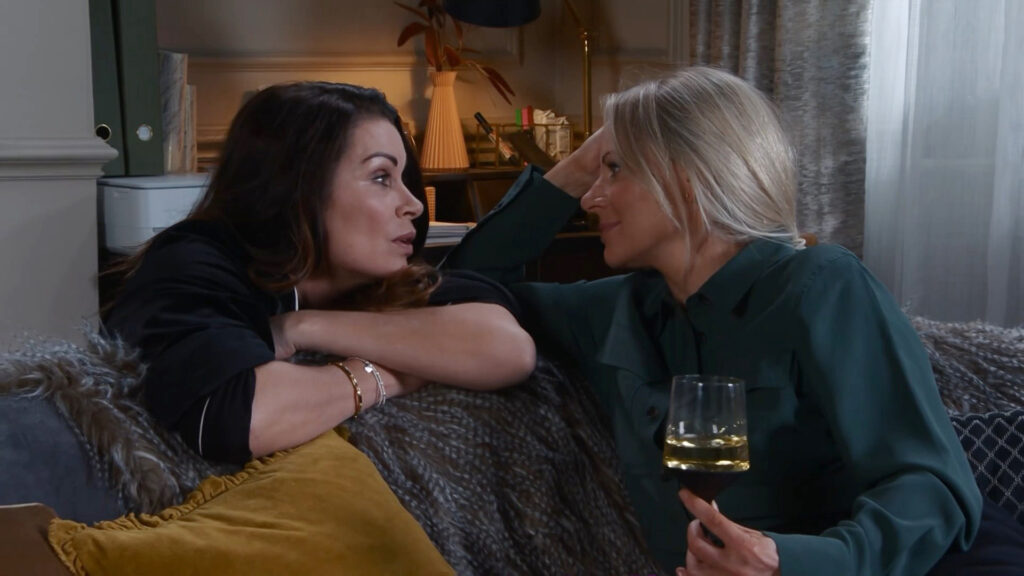
Telling real stories for real people
One of the unique powers of soap operas is their ability to tell stories that evolve over time. Unlike films or limited dramas, soap narratives can stretch across months or even years, allowing characters to grow, falter, and rediscover themselves in ways that reflect what happens in real life.
Carla and Lisa’s journey doesn’t feel like a ‘plot twist’ or a ratings grab. It’s slow, steady, and rooted in genuine connection. Their relationship built naturally, shaped by shared experiences and emotional honesty, rather than being dropped in as a sensational twist after a one-night-stand. They are allowed to be flawed, tender, funny, and complicated – everything that makes love stories compelling and human.
Compare this to other British soaps where LGBTQ+ storylines have often felt fleeting or one dimensional. EastEnders made history with Colin and Barry’s first gay kiss in 1989 and Syed Masood’s groundbreaking coming-out arc. But later attempts, like Sonia Fowler’s sudden 2007 romance, felt rushed and forgotten almost as soon as they began. Emmerdale, meanwhile, has given us iconic LGBT characters like Zoe Tate and Aaron Dingle, yet bisexual storylines have sometimes leaned into stereotypes or lacked the emotional depth audiences crave. Carla and Lisa avoid those pitfalls, offering something richer and more long-lasting.
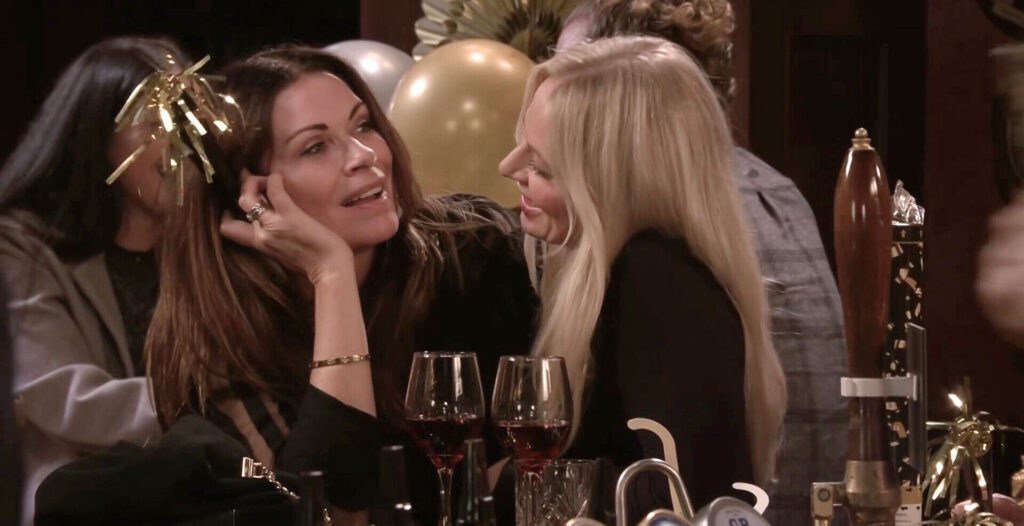
Challenging stigma and sparking conversations
Soaps reach millions of viewers from diverse backgrounds every week, many of whom may have limited exposure to LGBTQ+ issues in their everyday lives. This gives soaps a unique opportunity, and responsibility, to tackle prejudice, challenge outdated stereotypes, and reflect a broader reality.
Too often, same-sex relationships on screen are framed around tragedy or ‘issue episodes’ that are never mentioned again. Carla and Lisa’s story is different. It’s not just about sexuality, it’s about healing from trauma, rediscovering love later in life, and navigating personal growth with honesty and courage. Their storyline sparks real-world conversations not just about being a part of the LGBTQ+ community, but about resilience, acceptance, and second chances.
The amount of conversation happening on social media is something I don’t think anyone could have expected. The storyline has given viewers the strength to come out to their families, the opportunity to open conversations that wouldn’t have happened otherwise, and given hope to so many. You can read some personal experiences from our followers at the bottom of this article.
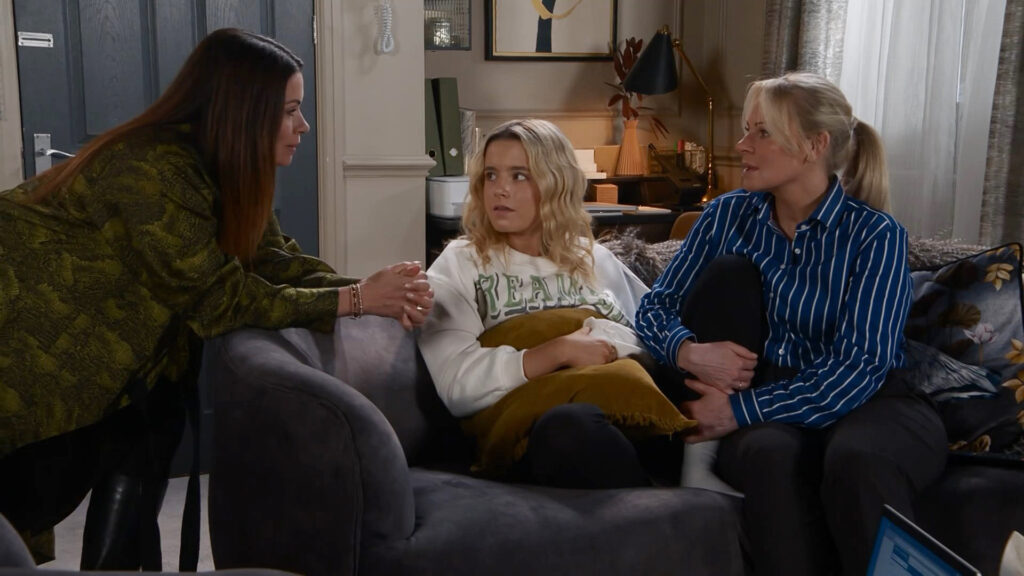
Representation saves lives
It’s no exaggeration to say that LGBTQ+ representation can be lifesaving. Countless studies, including one by Stonewall, have shown that LGBTQ+ youth are at significantly higher risk of mental health struggles, often due to experiences of isolation, rejection, or stigma, both in their communities and within their own families. When they see characters on screen who live full, joyful, complicated lives, who love, mess up, grow, and heal, it sends a powerful message that they are not alone.
Representation like Carla and Lisa’s relationship offers something more than visibility, it offers hope. It shows that love doesn’t have to follow a set script to be real, that you can come out, or fall in love, or start again, at any age and on your own terms. Their story is about emotional honesty, resilience, and connection, and it debunks the idea that queer love must be tragic or hidden. For many viewers, especially those who have never seen a reflection of themselves in a primetime soap before, this authenticity is more than just refreshing. It validates their experiences, helps ease their isolation, and in some cases, truly helps save lives.
The impact of meaningful representation goes far beyond entertainment. It helps build empathy, it opens doors to important conversations, and it creates a world, on screen and off, where being yourself doesn’t come with fear, but with pride.
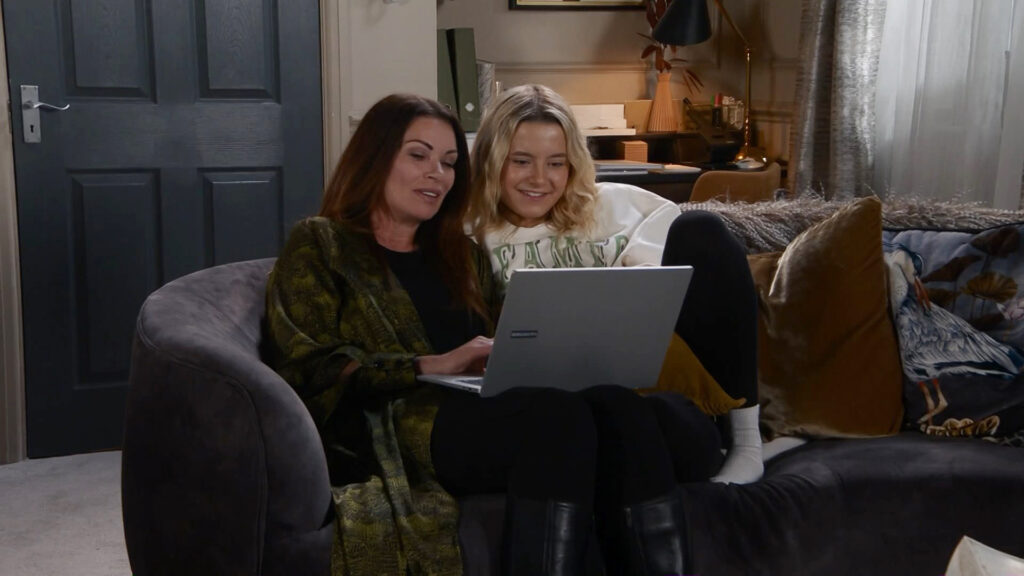
Betsy’s role in redefining family
Betsy’s role in Coronation Street is groundbreaking. As Lisa’s daughter, she adds an important layer to Carla and Lisa’s storyline, one that reflects the realities of countless families across the country. Too often, media portrays LGBTQ+ relationships as a stand-alone without showing the lives, responsibilities, and bonds that come with them. Betsy’s presence changes that. She brings to light the everyday beauty, occasional drama, and challenges of a blended queer family, where love and parenting go hand in hand.
In a world where so many children are growing up with two mums, two dads, or step-parents in same-sex relationships, seeing that dynamic on screen is not just refreshing, it’s vital. It helps normalise what is already a very normal part of life. For children in similar situations, it tells them their family is valid, respected, and worth celebrating. For adults, it reinforces the idea that family is defined not by tradition, but by love, support, and showing up.
Through Betsy, Coronation Street isn’t just reflecting the modern family, it’s helping redefine it. She represents the new generation of stories that show queer people not just as individuals, but as parents, caregivers, and central figures in the most important story of all, family.
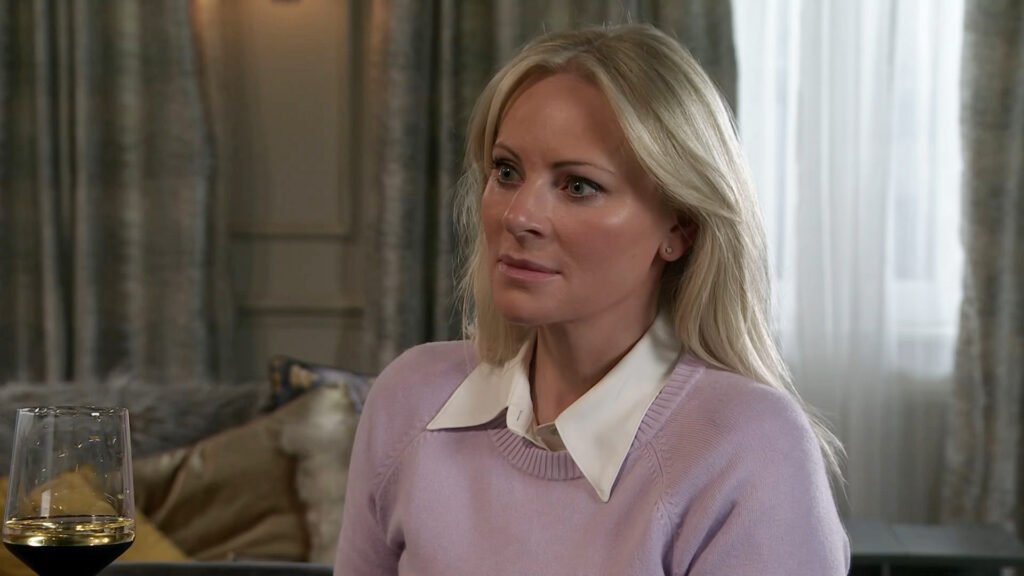
The power of great acting
Part of why Carla and Lisa’s story resonates so deeply comes down to the remarkable performances behind it.
Alison King has long been one of Coronation Street’s strongest actors. Her portrayal of Carla Connor is a masterclass in layered, emotionally rich acting, blending raw vulnerability with steely resilience and razor-sharp wit. King has a remarkable ability to shift seamlessly between moments of intense drama and quiet introspection, capturing Carla’s inner turmoil with subtlety and grace. Whether she’s navigating grief, guilt, addiction, or redemption, she brings a depth and realism that makes Carla feel not just believable, but deeply human.
Vicky Myers delivers a quieter, but equally powerful, performance. Her ability to convey volumes with just a glance, to make audiences laugh with sharp comedic timing, and to bring genuine vulnerability to even the quietest moments, marks her as a truly gifted actress. Whether she’s delivering hard-hitting drama or stealing scenes with a plethora of the most impressive fake sneezes, Myers brings authenticity and nuance to Lisa, making her feel like a fully real, lived-in character. She doesn’t just act the part – she inhabits it, and in doing so, elevates every scene she’s in.
It’s this acting talent that pushes their story above many past LGBTQ+ arcs, making it feel true rather than forced or manufactured for drama’s sake.
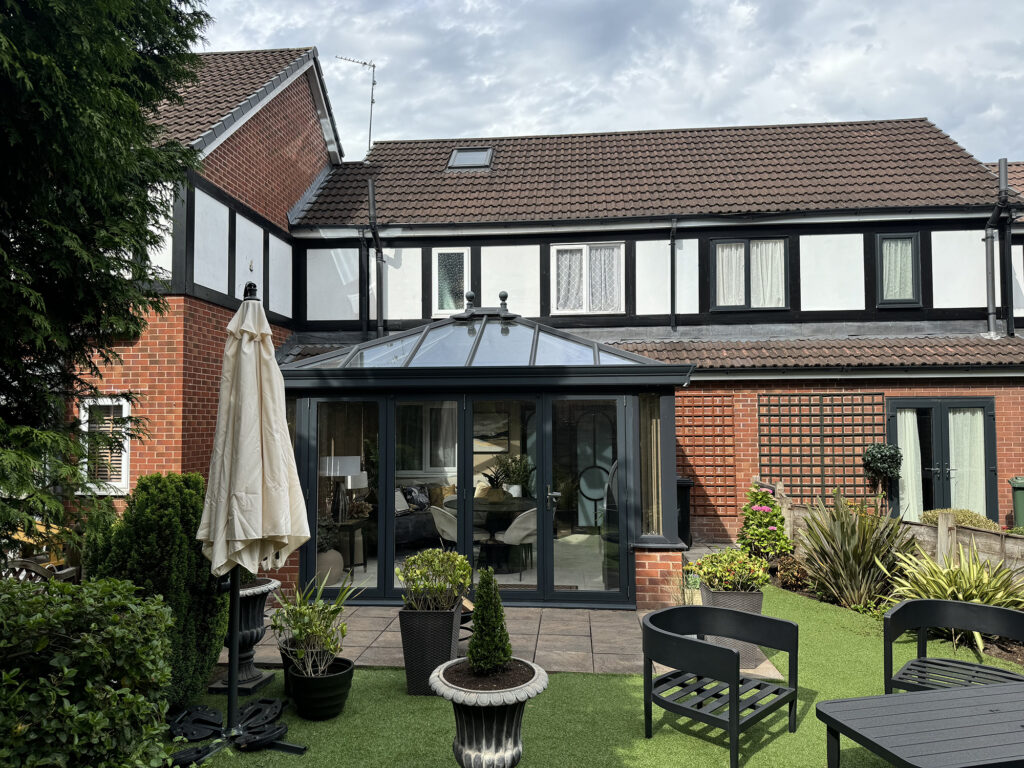
More than a trend, a responsibility
Representation isn’t about ticking boxes or meeting diversity quotas, it’s about telling the truth. Truth that reflects the richness, messiness, and beauty of real life. LGBTQ+ people exist in every community, every workplace, every family, and every postcode. They are neighbours, colleagues, parents, best friends, and yes, soap characters too. British soaps have long prided themselves on portraying ‘real life’, with stories rooted in everyday struggles, humour, and triumphs, and that means including everyone, in all their complexity.
Carla and Lisa’s romance proves exactly what can happen when that responsibility is embraced, not avoided. It’s heartfelt, authentic, and allowed to grow with all the emotional weight it deserves. It doesn’t lean on stereotypes or shock value, and is exactly the kind of representation that not only resonates deeply with those who see themselves in it, but also invites empathy and understanding from those who don’t. It doesn’t just make for great television – it makes a real, lasting impact.
And now, with keys in hand and their names on the property deed of No.6 Coronation Street, Carla and Lisa aren’t just making history, they’re reshaping what home looks like on the cobbles. And in doing so, they’re making Coronation Street feel more inclusive, more honest, and more like home for all of us.
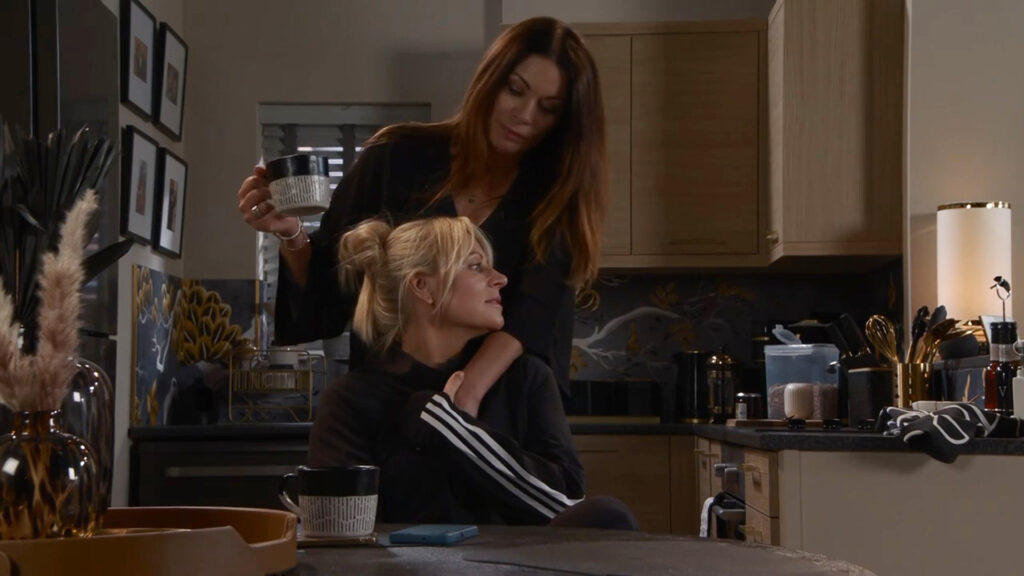
Your thoughts and experiences
We threw the question out to our incredible followers, to gather some insight into just how it feels to have such prominent LGBTQ+ representation on the prime time screen. Here’s what you had to say.
If I would be a teenager now questioning my sexuality, and would have found Swarla and the community, I probably wouldn’t have needed years to understand my own sexuality. Until no kid has to go through that mental strain of wondering who am I, am I normal, will I ever find love, am I safe, how will my parents react, representation is needed.
It builds communities, which to some is a lifeline as they might not have any support otherwise. It allows people to find a chosen family of likeminded people and allies. On the other hand, it can also expand the views of people outside of the community and show them that there’s nothing to fear, we’re all just human after all.
My relationship with my mum was strained after coming out ten years ago. Seeing LGBTQ+ storylines since then has opened up conversations, and brought us closer again.
It’s refreshing to see soaps clearly doing their research to ensure that they are executing things in an authentic way, a way that actually resonates with all kinds of perspectives on a situation. All of those different points of view make up incredible communities.
Seeing LGBTQ+ characters on screen made me more comfortable coming out to my family.
My parents seeing a happy LGBTQ+ couple on TV means they’re less worried about my future.
It helps the younger generations to see that they have a bright future ahead.
It’s incredibly validating to see a show made for a mainstream audiences still fighting back in the face of adversity.
It helps to validate identities, combat stereotypes, and reflects today’s society.
I always had a hard time picturing my future because I didn’t see it represented anywhere. Now I can.
It helps people around me accept my partner.
Thank you to everyone who submitted their thoughts! This storyline means so much to so many, and each and every single story matters.
Sarah xo
Images copyright of ITV

